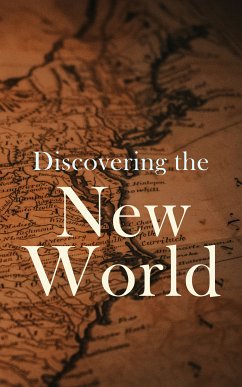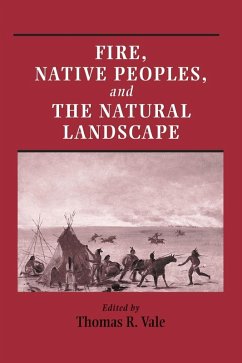
Discovering the Unknown Landscape (eBook, ePUB)

PAYBACK Punkte
24 °P sammeln!
The rapidly disappearing wetlands that once spread so abundantly across the American continserve an essential and irreplaceable ecological function. Yet for centuries, beginning with the first European settlers, Americans have viewed them with disdain. As neither dry land, which can be owned and controlled by individuals, nor bodies of water, which are considered a public resource, wetlands have in recyears been at the center of controversy over issues of environmental protection and property rights.The confusion and contention that surround wetland issues today are the products of a long and ...
The rapidly disappearing wetlands that once spread so abundantly across the American continserve an essential and irreplaceable ecological function. Yet for centuries, beginning with the first European settlers, Americans have viewed them with disdain. As neither dry land, which can be owned and controlled by individuals, nor bodies of water, which are considered a public resource, wetlands have in recyears been at the center of controversy over issues of environmental protection and property rights.The confusion and contention that surround wetland issues today are the products of a long and convoluted history. In Discovering the Unknown Landscape, Anne Vileisis presents a fascinating look at that history, exploring how Americans have thought about and used wetlands from Colonial times through the presday. She discusses the many factors that influence patterns of land use -- ideology, economics, law, perception, art -- and examines the complicated interactions among those factors that have resulted in our contemporary landscape. As well as chronicling the march of destruction, she considers our seemingly contradictory tradition of appreciating wetlands: artistic and literary representations, conservation during the Progressive Era, and reclegislation aimed at slowing or stopping losses.Discovering the Unknown Landscape is an intriguing synthesis of social and environmental history, and a valuable examination of how cultural attitudes shape the physical world that surrounds us. It provides important context to currdebates, and clearly illustrates the stark contrast between centuries of beliefs and policies and recattempts to turn those longstanding beliefs and policies around. Vileisis's clear and engaging prose provides a new and compelling understanding of modern-day environmental conflicts.
Dieser Download kann aus rechtlichen Gründen nur mit Rechnungsadresse in A, B, BG, CY, CZ, D, DK, EW, E, FIN, F, GR, HR, H, IRL, I, LT, L, LR, M, NL, PL, P, R, S, SLO, SK ausgeliefert werden.













